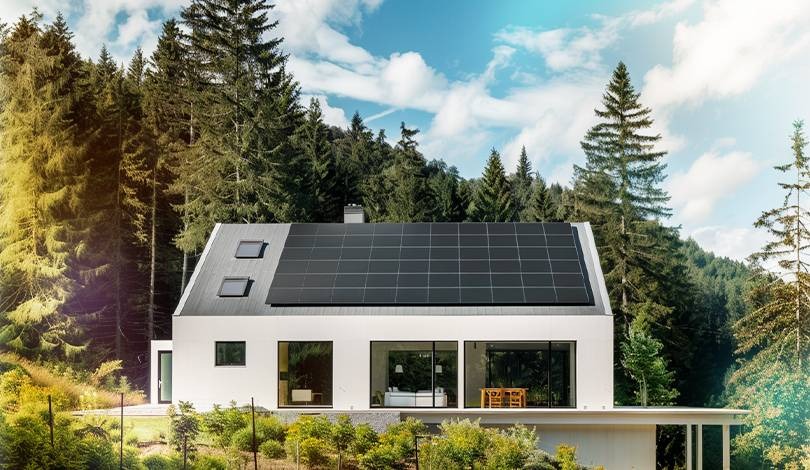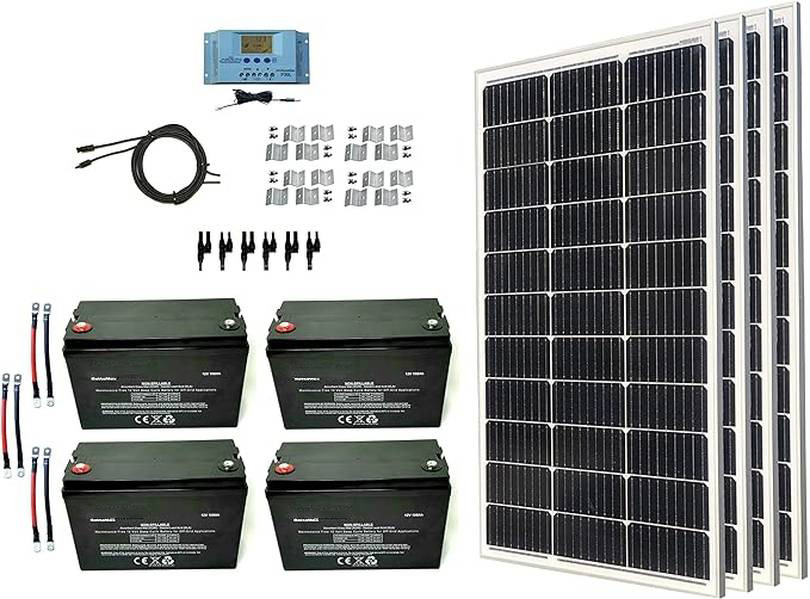Off-grid solar: Costs, process, and best products in 2024

In the hyper-plugged-in world we live in today, the notion of going off the grid can be enticing. But beyond wanting to escape for a while, going off the grid has a specific technical meaning: To go off the grid is to have no relationship with your utility company and independently produce 100% of your electricity.
Going solar doesn’t mean you’re off the grid. In fact, the vast majority of home solar panel systems are grid-tied because it’s almost always the more practical and beneficial option. Not only does maintaining a grid connection ensure that the lights will stay on at night and on cloudy days, but it also allows you to participate in programs like net metering that can drastically increase the value of your solar investment.
Going off-grid really only makes sense for homes with low electricity consumption or those in remote locations. If you fit this description and are eager to establish true energy independence, let’s break down the different types of equipment you’ll need and how much you can expect to pay for it.
The term “off the grid” refers to living autonomously without any connection to a utility for power. If you go off-grid, you’ll need to meet all your household needs with electricity produced onsite. For this reason, offgrid living works best for small homes in rural locations where reliable grid access is lacking.
Going solar doesn't mean you're off the grid
Going solar does grant you a level of energy independence, but it doesn’t mean you’re off the grid. Since solar panels can’t produce electricity without sunshine, most residential solar power systems in the United States remain grid-connected so that they can draw power at night or on cloudy days.
It’s possible to go off-grid with your solar panel system, but you’d have to install a larger system with multiple solar batteries to store energy—which is expensive. Generally, you’ll need the following system components for an off-grid solar setup:
Solar panels
Solar inverters
Wiring/cables
Mounting equipment
PWM or MPPT charge controller
Energy storage (typically a solar battery or a backup generator)
Energy storage (typically a solar battery or a backup generator)
Grid-tied solar panel systems are almost always the way to go
There’s a reason why the overwhelming majority of residential solar panel systems maintain a connection to the utility grid. Solar panels can’t produce electricity on demand, and connecting to the grid allows you to keep the lights on at night and on cloudy days. Energy storage systems can also help you achieve this, but even most solar-plus-storage systems are more reliable and cost-effective when connected to the grid.
Why go off-grid?
You live in a remote area without grid access
Some homes in remote areas function well off-grid with smaller, less expensive solar and storage systems. Often designed specifically for off-grid living, these homes may require little energy for heating and cooling and limit the extent of electrical systems in the house. Still, you may have to manage your lifestyle to accommodate periods throughout the year without electricity.
Your utility's electricity supply isn't always reliable
The desire to go off-grid may be less about cutting the cord with your utility and more driven by improving resiliency if steady electricity is not something you can expect with your utility.
Installing one or two solar batteries with islanding capabilities, or the ability to form their own grid, can ensure your house remains powered during a severe weather event or grid outage. For most solar shoppers, this is a cost-effective way to improve the resiliency of your home without breaking the bank by going entirely off-grid.
LEE-CHUNQU

Credit: Windy Nation
Complete solar kit includes four 100 W monocrystalline solar panels, a charge controller, a solar cable, connectors, mounting hardware, a 15oo Winverter, and four 100 Ah batteries. This system can work well for a tiny cabin because it’s easily expandable, but you’ll likely need to upgrade the solar charge controller for this setup.